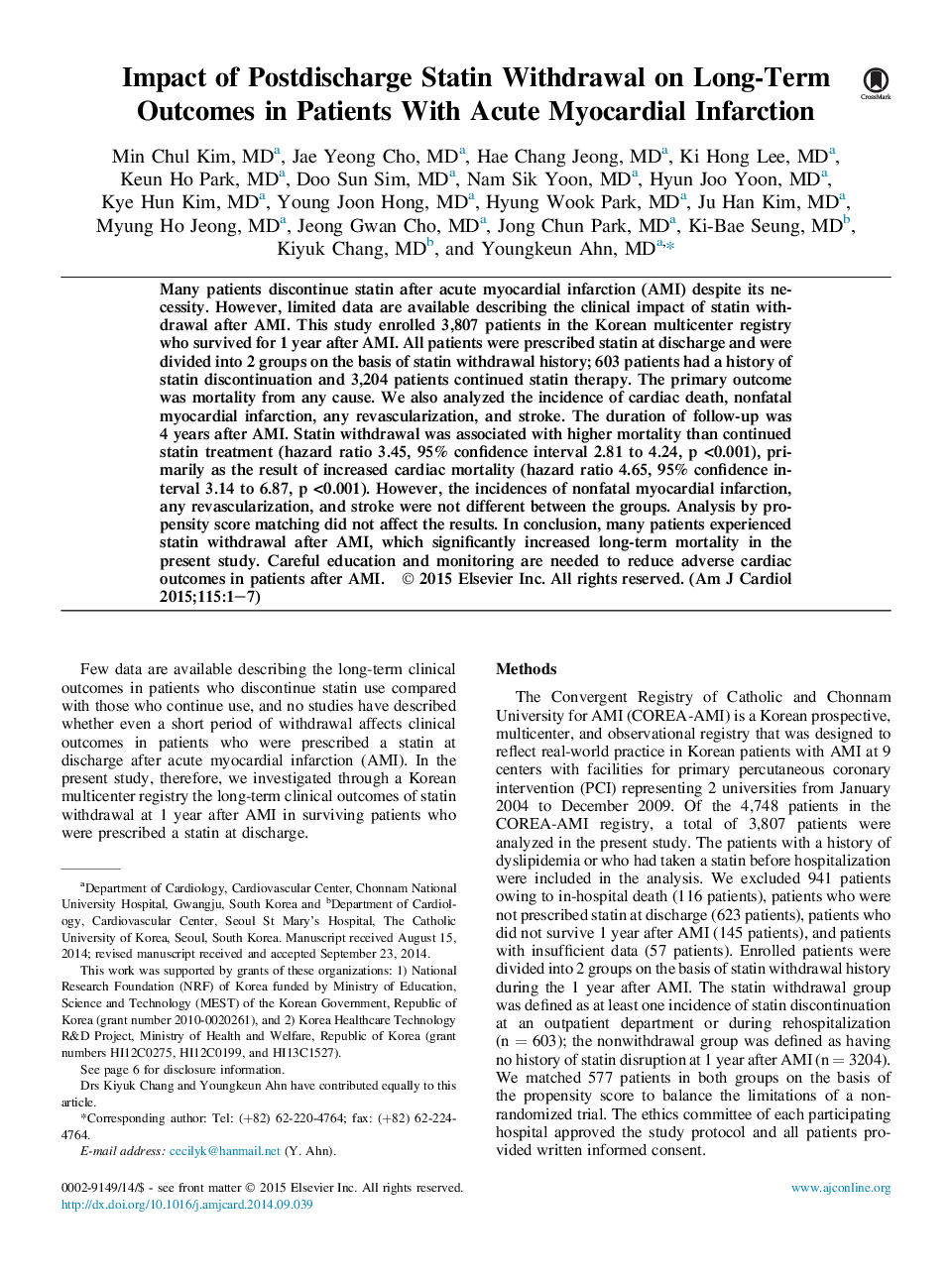| Article ID | Journal | Published Year | Pages | File Type |
|---|---|---|---|---|
| 2853709 | The American Journal of Cardiology | 2015 | 7 Pages |
Many patients discontinue statin after acute myocardial infarction (AMI) despite its necessity. However, limited data are available describing the clinical impact of statin withdrawal after AMI. This study enrolled 3,807 patients in the Korean multicenter registry who survived for 1 year after AMI. All patients were prescribed statin at discharge and were divided into 2 groups on the basis of statin withdrawal history; 603 patients had a history of statin discontinuation and 3,204 patients continued statin therapy. The primary outcome was mortality from any cause. We also analyzed the incidence of cardiac death, nonfatal myocardial infarction, any revascularization, and stroke. The duration of follow-up was 4 years after AMI. Statin withdrawal was associated with higher mortality than continued statin treatment (hazard ratio 3.45, 95% confidence interval 2.81 to 4.24, p <0.001), primarily as the result of increased cardiac mortality (hazard ratio 4.65, 95% confidence interval 3.14 to 6.87, p <0.001). However, the incidences of nonfatal myocardial infarction, any revascularization, and stroke were not different between the groups. Analysis by propensity score matching did not affect the results. In conclusion, many patients experienced statin withdrawal after AMI, which significantly increased long-term mortality in the present study. Careful education and monitoring are needed to reduce adverse cardiac outcomes in patients after AMI.
